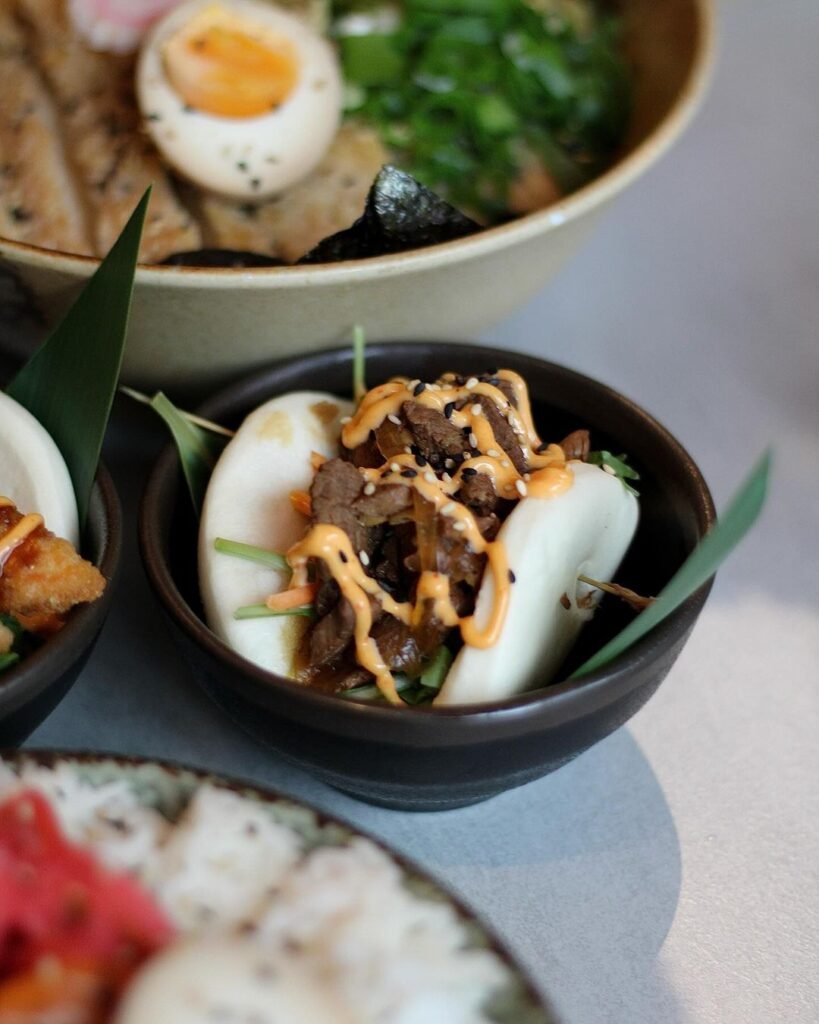Let’s face it, folks! The question "Is Japanese food halal?" has been buzzing around like a swarm of hungry bees lately. If you're a fan of sushi, ramen, or tempura, but also follow halal dietary guidelines, you’re probably scratching your head wondering if these two worlds can coexist. Well, buckle up because we’re about to break it down for you in a way that’s both informative and easy to digest. Think of this as the ultimate cheat sheet for all things Japonais Halal!
Picture this: You’re at your favorite Japanese restaurant, eyeing that delicious plate of sushi, but then the question hits you—does it pass the halal test? The truth is, Japanese cuisine is a culinary masterpiece, but its ingredients and preparation methods can sometimes raise eyebrows for those who follow halal guidelines. Don’t worry, though; we’re here to clear up the confusion and help you enjoy your favorite dishes guilt-free.
So, why does this matter? In today's globalized world, food transcends borders, and more people are exploring international cuisines. But for Muslims, ensuring food aligns with halal principles is non-negotiable. That’s why understanding whether Japanese cuisine fits the bill is crucial. Let’s dive into the details, shall we?
Read also:Hannah Owo Died
What Exactly is Halal?
Before we get into the nitty-gritty of Japanese food, let’s take a step back and talk about what halal means. Halal isn’t just about avoiding pork or alcohol; it’s a set of dietary laws derived from Islamic teachings that dictate how food should be prepared, sourced, and consumed. In short, halal food must be clean, pure, and free from any prohibited ingredients or practices.
For meat to be considered halal, it must come from animals that have been slaughtered in a specific way—bismillah (in the name of Allah) must be recited, and the animal must be slaughtered swiftly to minimize pain. Alcohol, blood, and pork are strictly off-limits. Got it? Great! Now let’s see how Japanese cuisine stacks up against these guidelines.
Breaking Down Japanese Cuisine
Japanese food is renowned for its simplicity, elegance, and focus on fresh ingredients. From sushi and sashimi to tempura and ramen, the variety is mind-blowing. But when it comes to halal, there are a few key ingredients and cooking methods that need to be scrutinized. Let’s break it down:
Common Ingredients in Japanese Food
Here’s a quick rundown of some common ingredients in Japanese cuisine and their halal status:
- Soy Sauce: Most soy sauces contain alcohol as a preservative, which makes them non-halal. However, there are halal-certified soy sauces available if you know where to look.
- Mirin: This sweet rice wine is a staple in Japanese cooking, but its alcohol content makes it a no-go for halal eaters. Thankfully, there are alcohol-free alternatives.
- Dashi: A broth made from fish or kelp, dashi is a fundamental component of Japanese cuisine. While vegetarian dashi is halal, fish-based versions may not be.
- Fish and Seafood: Fish is generally considered halal in Islam, but the method of capture and preparation matters. Always check if the seafood is fresh and properly handled.
Can Sushi Be Halal?
Now, here’s the million-dollar question: Can sushi, the crown jewel of Japanese cuisine, be halal? The answer is a resounding yes—but with a few caveats. Traditional sushi often contains non-halal ingredients like fish-based dashi or alcohol-laden mirin. However, many restaurants now offer halal sushi options by substituting these ingredients with halal-friendly alternatives.
How to Spot Halal Sushi
When dining out, look for halal-certified sushi restaurants or ask the chef about their preparation methods. Some key things to check include:
Read also:Vanna White Son Nikko
- Whether the fish is fresh and handled according to halal guidelines.
- If the rice vinegar used is alcohol-free.
- Whether any sauces or seasonings contain non-halal ingredients.
Is Ramen Halal?
Ramen lovers, don’t despair! This hearty noodle soup can absolutely be halal if prepared correctly. The key lies in the broth and toppings. Traditional ramen broths often use pork or bonito flakes, which are non-halal. However, vegetable or chicken-based broths can easily replace them. Just make sure the noodles themselves are halal-certified and free from pork-derived ingredients.
Halal Ramen Alternatives
Here are some tips for enjoying halal ramen:
- Choose vegetable or chicken-based broths instead of pork or fish-based ones.
- Opt for toppings like tofu, seaweed, or halal-certified meats.
- Check the noodle packaging for halal certification.
Tempura: A Halal-Friendly Option?
Tempura, those crispy battered veggies and seafood, is generally halal-friendly. Since it doesn’t involve any pork or alcohol, it’s a safe bet for halal eaters. Just ensure the oil used for frying is halal and the ingredients are fresh and properly handled.
Halal Japanese Restaurants: Where to Find Them
With the growing demand for halal food, many Japanese restaurants are now offering halal-certified options. From high-end sushi bars to casual ramen joints, there’s something for everyone. To find these gems, look for halal certification logos, check online reviews, or ask locals for recommendations.
Tips for Dining at Halal Japanese Restaurants
Here are a few tips to ensure a smooth dining experience:
- Always confirm the restaurant’s halal certification before visiting.
- Ask about the ingredients and preparation methods if unsure.
- Don’t hesitate to request modifications to dishes to suit your dietary needs.
DIY Halal Japanese Cooking
If you’re feeling adventurous, why not try your hand at cooking halal Japanese dishes at home? With the right ingredients and recipes, you can recreate your favorite Japanese meals without compromising on halal standards. Plus, cooking at home gives you full control over what goes into your food.
Essential Halal Japanese Ingredients
Here’s a list of must-have halal ingredients for your Japanese cooking adventures:
- Halal-certified soy sauce
- Alcohol-free mirin
- Vegetable or chicken-based dashi
- Fresh, halal-certified seafood
Health Benefits of Japanese Cuisine
Aside from being delicious, Japanese cuisine is also known for its health benefits. Rich in fresh seafood, vegetables, and whole grains, it’s a great option for those looking to eat clean and healthy. Plus, many Japanese dishes are naturally low in fat and calories, making them a guilt-free choice.
Why Choose Halal Japanese Food?
Choosing halal Japanese food not only ensures compliance with religious guidelines but also offers the peace of mind that comes with knowing your food is clean and wholesome. It’s a win-win situation for both your body and soul.
Conclusion: Embrace the Harmony of Japonais Halal
So, there you have it, folks! Japanese cuisine can absolutely be halal if prepared with the right ingredients and methods. Whether you’re dining out or cooking at home, there’s no reason why you can’t enjoy the beauty of Japanese food while sticking to your halal principles.
Now, here’s the fun part: share this article with your friends, drop a comment below, or check out our other articles for more food-related goodness. Together, let’s bridge the gap between cultures and cuisines, one halal bite at a time!
Table of Contents
- What Exactly is Halal?
- Breaking Down Japanese Cuisine
- Common Ingredients in Japanese Food
- Can Sushi Be Halal?
- Is Ramen Halal?
- Tempura: A Halal-Friendly Option?
- Halal Japanese Restaurants: Where to Find Them
- DIY Halal Japanese Cooking
- Health Benefits of Japanese Cuisine
- Why Choose Halal Japanese Food?


